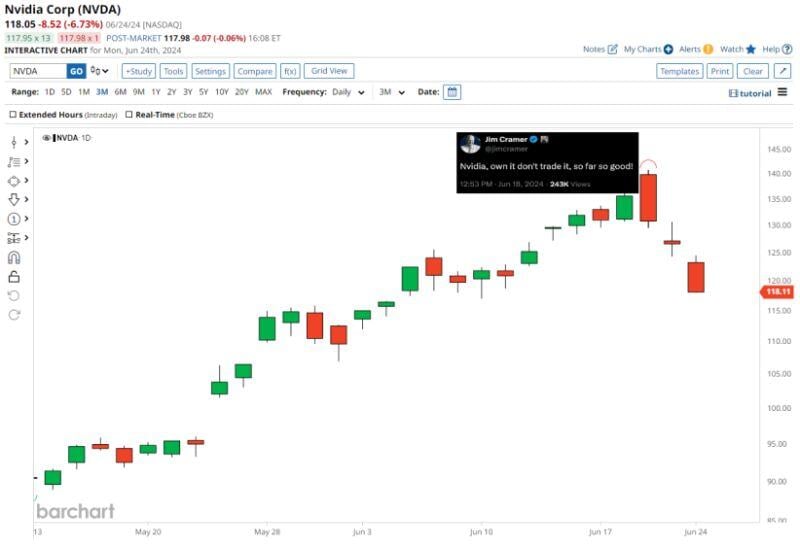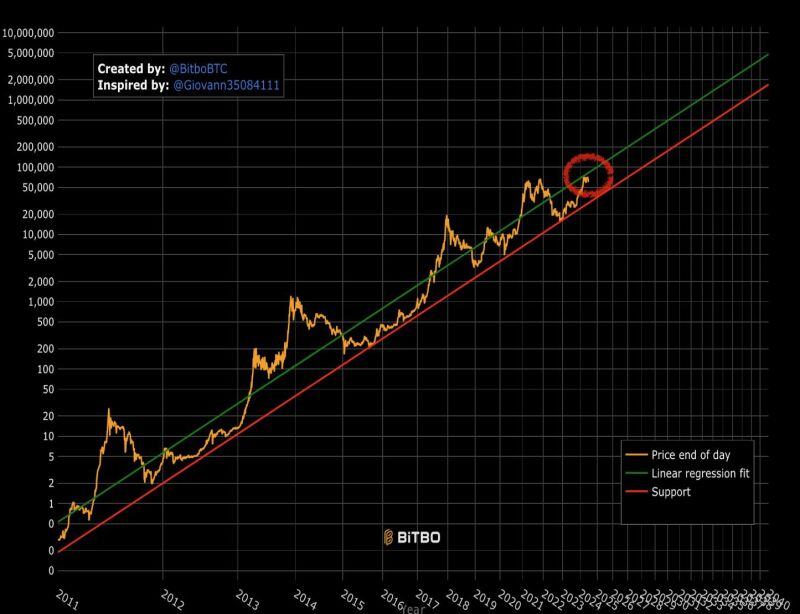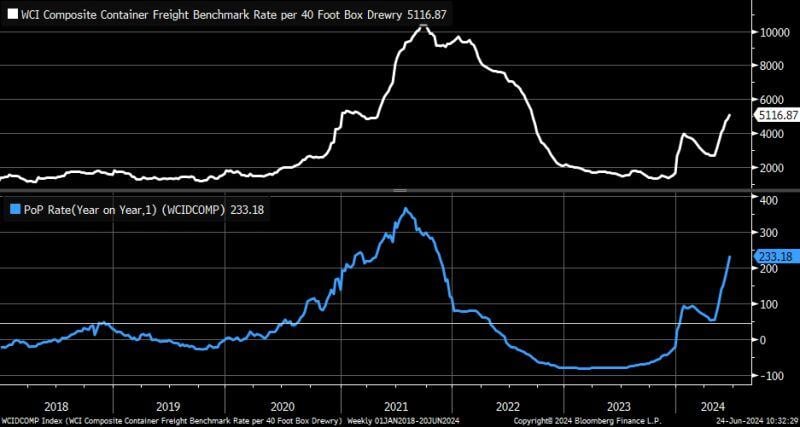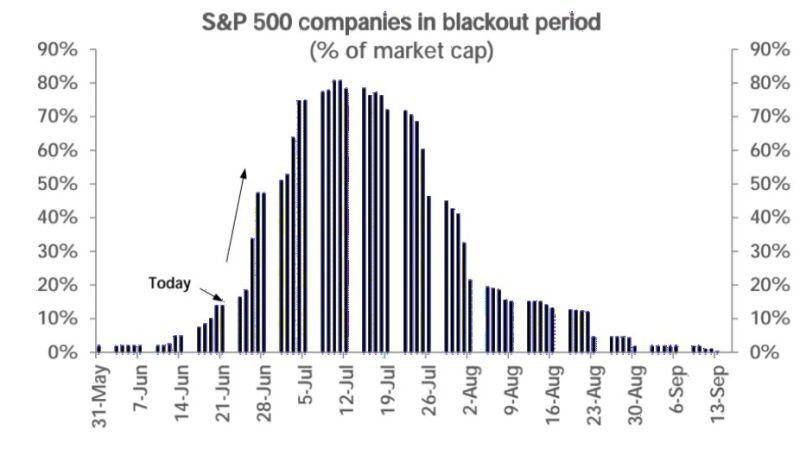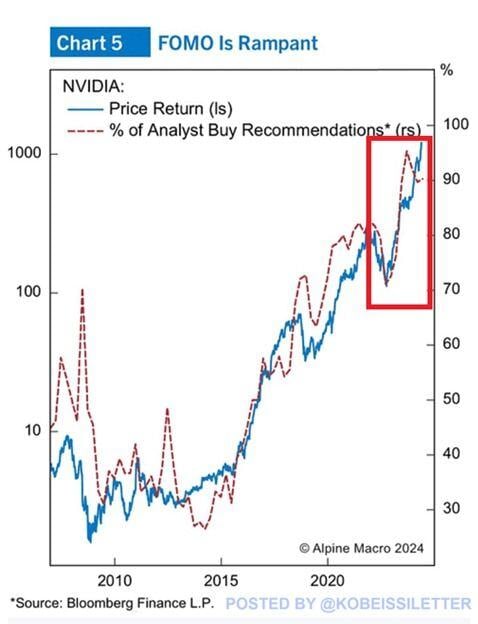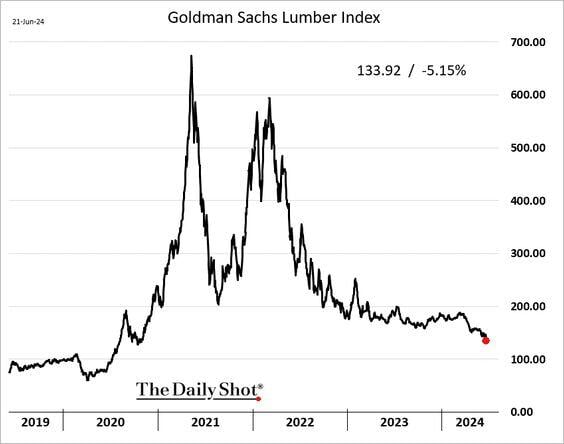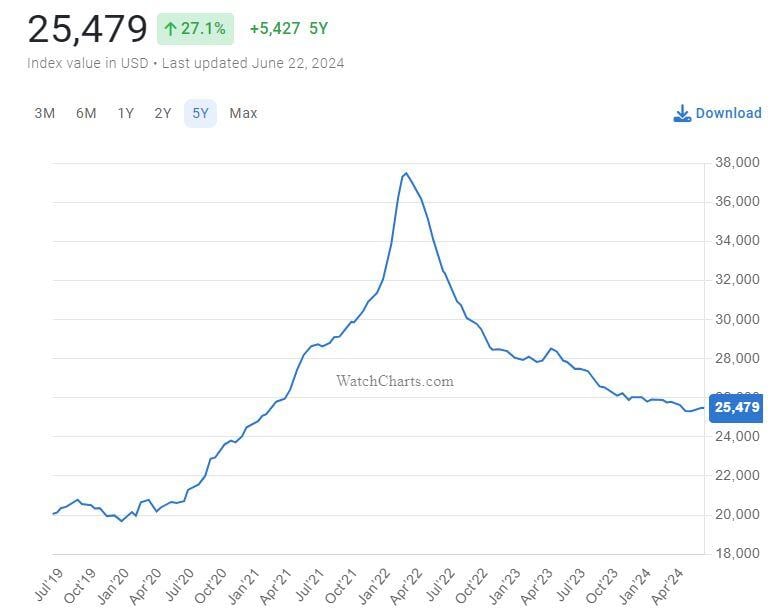Straight from the Desk
Syz the moment
Live feeds, charts, breaking stories, all day long.
- All
- equities
- United States
- Macroeconomics
- Food for Thoughts
- markets
- Central banks
- Fixed Income
- bitcoin
- Asia
- europe
- investing
- geopolitics
- gold
- technical analysis
- Commodities
- Crypto
- AI
- Technology
- nvidia
- ETF
- earnings
- Forex
- china
- Real Estate
- oil
- banking
- Volatility
- energy
- magnificent-7
- apple
- Alternatives
- emerging-markets
- switzerland
- tesla
- United Kingdom
- Middle East
- assetmanagement
- amazon
- microsoft
- russia
- ethereum
- ESG
- meta
- Industrial-production
- bankruptcy
- Healthcare
- Turkey
- Global Markets Outlook
- africa
- Market Outlook
- brics
- performance
$NVDA is now down 13% since Jim Cramer said "Nvidia, so far, so good"
Source: The Kobeissi Letter
Global freight container rates still moving higher and year/year increase is now up to +233%
Source: Bloomberg, Kevin Gordon on X
And so begins the S&P 500 buyback blackout period . . .
Source: Markets & Mayhem
Nvidia FOMO ? This is interesting:
~90% of Wall Street analysts have now a buy rating on NVIDIA, up from ~30% a decade ago. This comes after the chipmaker's share prices have skyrocketed 27,989% over the last 10 years. As the stock rally intensified, the number of buy ratings rapidly increased. Wall Street has never been more bullish of $NVDA. While fundamentals are strong, there is indeed a risk of short-term pullback. A buying opportunity? Or just the start of something more severe? Source chart: Alpine Macro
Lumber prices continue to sink amid a soft US housing market
Source: The Daily Shot
Rolex prices are down almost 40% from highs
Source: Michael Burry Stock Tracker ♟
Investing with intelligence
Our latest research, commentary and market outlooks


